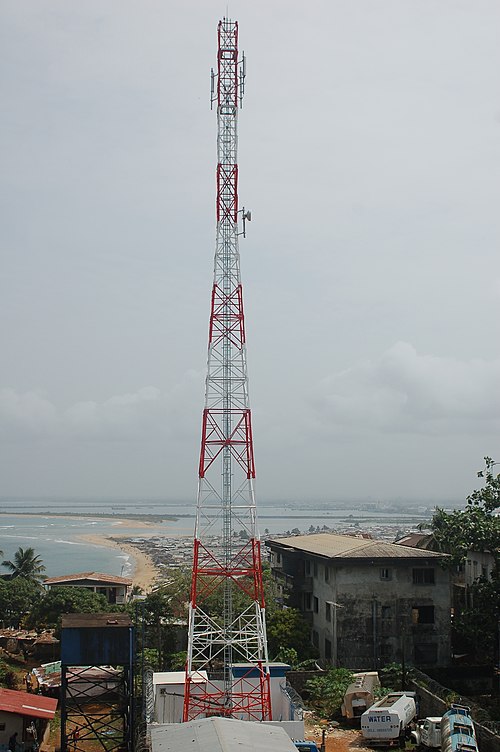Telecommunications in Burkina Faso include radio, television, fixed and mobile telephones, and the Internet.
Telecommunications in Chad include radio, television, fixed and mobile telephones, and the Internet.
Telecommunications in Cameroon include radio, television, fixed and mobile telephones, and the Internet.
Telecommunications in Gabon include radio, television, fixed and mobile telephones, and the Internet.

Telecommunications in Ghana include radio, television, fixed and mobile telephones, and the Internet.
Telecommunications in Guinea include radio, television, fixed and mobile radio, and the Internet.
Telecommunications in Guinea-Bissau include radio, television, fixed and mobile telephones, and the Internet.
Telecommunications in Kenya include radio, television, fixed and mobile telephones, and the Internet.
Telecommunications in Lesotho include radio, television, print and online newspapers, fixed and mobile telephones, and the Internet.
Telecommunications in Mozambique include radio, television, fixed and mobile telephones, and the Internet.
Telecommunications in Namibia include radio, television, fixed and mobile telephones, and the Internet.
Telecommunications in Niger include radio, television, fixed and mobile telephones, and the Internet.
Telecommunications in the Republic of the Congo include radio, television, fixed and mobile telephones, and the Internet.
Telecommunications in Rwanda include radio, television, fixed and mobile telephones, and the Internet.
Telecommunications in Senegal include radio, television, fixed and mobile telephones, and the Internet.
Telecommunications in Togo include radio, television, fixed and mobile telephones, and the Internet.
Telecommunications in Trinidad and Tobago include radio, television, fixed and mobile telephones, and the Internet.
Telecommunications in Madagascar include newspapers, radio, television, fixed and mobile telephones, and the Internet.
Telecommunications in the Gambia includes radio, television, fixed and mobile telephones, and the Internet.
Telecommunications in Ivory Coast include radio, television, fixed and mobile telephones, and the Internet.


